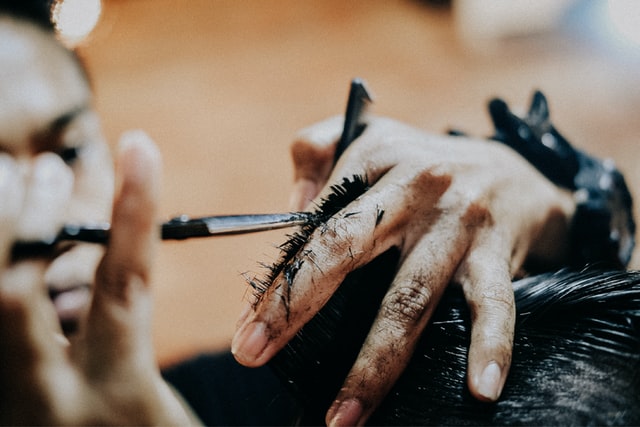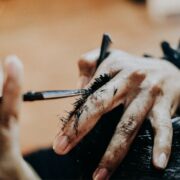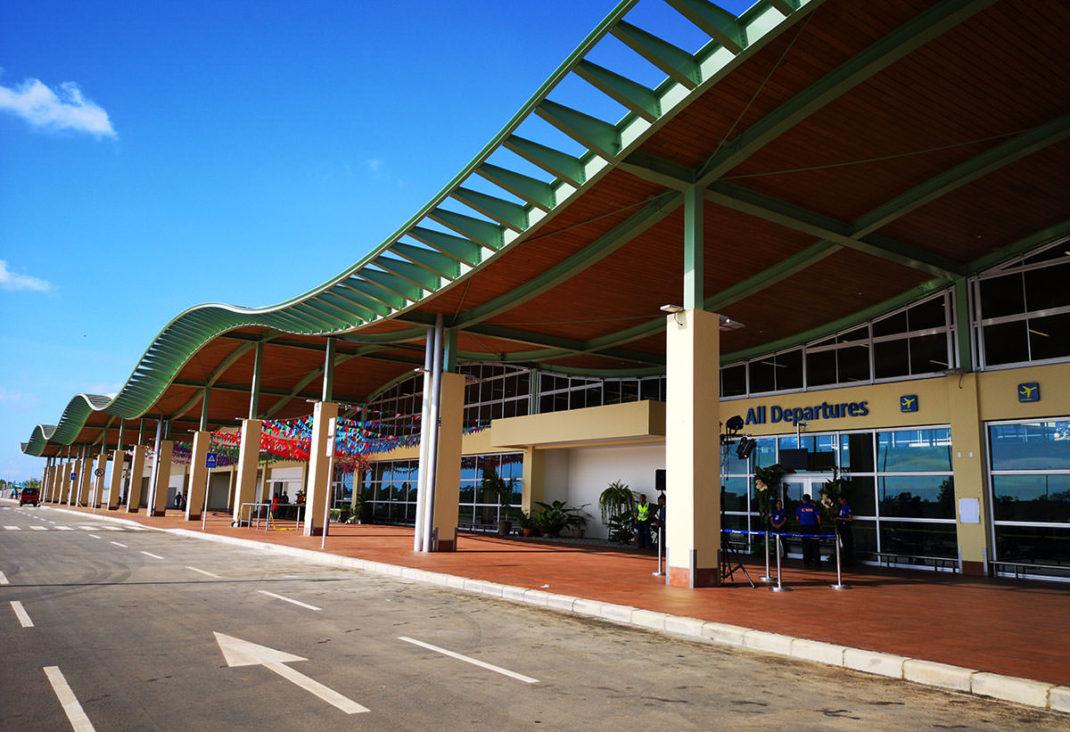
THIS week, Los Angeles County began allowing certain hair salons and barber shops to operate indoors.
Effective Wednesday, Sept. 2, hair salons and barber shops may resume indoor services as long as they don’t exceed 25% occupancy and the business owners fully comply with safety protocols: 6 feet of physical distancing and face coverings for employees and customers.
“If your hair salon or barbershop has been operating outdoors please continue to do so and use your 25% occupancy for those services you’re not able to provide outdoors. All other current restrictions remain unchanged at this time,” LA County Health Officer Dr. Muntu Davis said in a news conference on Wednesday.
Although LA County remains one of the worst counties in the state in terms of viral mitigation, both business owners and officials have been frantically finding ways to re-open businesses and salvage the economy.
When the COVID-19 crisis hit and the subsequent lockdown measures were imposed, hair salons, barber shops and other grooming services were among the first businesses ordered to shut down, disrupting many residents’ aesthetic routines.
The nature of these services — hairdressing, nail artistry, massages and esthetician amenities — relies on physical proximity, and in the era of social distancing in a COVID-19 world, it’s become more difficult for consumers to maintain their grooming habits.
But it’s even more difficult for those that provide these services. Throughout the seven months of quarantine, salon employees and owners have seen their businesses suffer due to the dramatic loss of regular clientele and have expressed frustration over the inherent uncertainty of a global pandemic.
Although most stylists are approaching these new relaxed measures with caution, they are also feeling the financial and emotional hardships of being in the hairstyling industry.
Maisha Mason-Belden, a Filipina American hairstylist based at the Allen Pacheco Salon in Santa Monica, said that she became unemployed when the citywide safer-at-home order was first put in place on March 17.
As the pandemic continued to rage on and lawmakers felt pressure to institute economic re-openings, the state allowed certain grooming services to re-open in July, as previously reported in the Asian Journal. But almost as soon as those services reopened, they were, again, ordered to close due to high transmission of the virus throughout the state.
“The July re-opening — and then closing — was very confusing. By the time I got my clients ready to see me to get their hair done, [Gov.] Gavin Newsom announced another shutdown,” she explained. “This pandemic has affected my business greatly and clients are hesitant [to] come back to the salon.”
In terms of the safety protocols and the “skeleton staff” that now operates the salon, Mason-Belden noted that she and the other stylists had to take on an added number of responsibilities since the salon furloughed many assistive employees.
But despite the government’s wavering response to salon operations, Mason-Belden noted the importance of the safety precautions that are currently in place: having clients wait in their cars rather than in the lobby, regularly disinfect products, using disposable haircutting capes and frequent handwashing.
“We all chuck it up to the ‘new norm’ of things in working in a hair salon,” she remarked, noting that she has gotten used to the frequent sanitization practices and is guided by the possibility that she may get sick.
“It’s inconvenient, sure, but we’re all okay with it as long as we keep working,” she said.
According to LA County Supervisor Janice Hahn, the county will “re-evaluate” conditions for increasing salon capacities after Labor Day, but many shop owners like Mason-Belden continue to be guided by the still alarming positive case and death numbers.
Although numbers have plateaued, many are worried about viral transmission as more people decide to congregate over extended periods, like Labor Day weekend.
Chaie de Jesus, a Filipina American hairstylist at Nova Arts Salon in Downtown LA, said that the pandemic has shifted her entire schedule, which included regular work trips to San Francisco and New York, not to mention her long list of loyal clients she sees in LA.
Among the things she misses from pre-COVID times was the vibrant culture of the beauty salon.
“I loved being in the salon because you have your friends and co-workers to share energies with but with our guidelines in the salon, we can’t even congregate anymore,” de Jesus told the Asian Journal.
Before the county allowed for indoor services to resume, many salons were hosting outdoor services similar to the “al fresco” option for restaurants.
But de Jesus, who has asthma and has severely limited her personal time outside the house, has instead been meeting clients one-on-one as a way to safeguard herself, her wife and their 15-month-old baby.
Around the beginning of summer, de Jesus said that clients began asking her if she was taking appointments. Soon after, she began seeing clients one-by-one, either traveling to their homes and working in their backyard or inviting them to her driveway. As the appointments began to stack up, de Jesus said that she developed a personal intensive sanitation routine.
In addition to wearing a mask, de Jesus arrives at appointments with 80% rubbing alcohol and a UV sanitizer (which kills 99.9% of bacteria and germs, she said) and ensures that she doesn’t use the same tools on each of her clients in a day. These steps were on top of the state mandates for stylists to have clients arrive to appointments with their hair already washed and dried and prepared for cutting.
“You have to just take all those precautions because you’re working so close to a client and it wasn’t easy but once you have the routine down, it becomes a part of you,” de Jesus shared.
She expressed skepticism about the new allowance of indoor services with 25% capacity and said that house calls “for me is the best way to do it” because “clients feel so much safer at home” or meeting on a one-on-one basis.
So far, de Jesus is booked until the first week of October and plans to move forward with these house calls, which she sees as a happy medium where she is able to operate safely and be able to serve her clients.
“The mere fact that I can make someone feel good during quarantine is my favorite part because it’s been really depressing, so I try to go above and beyond for my clients. Everyone is suffering, and I still want to take care of people and serve my purpose,” de Jesus added.







